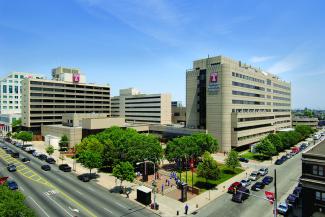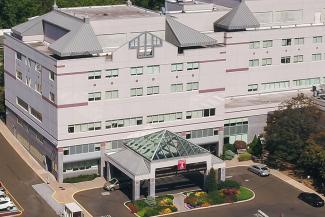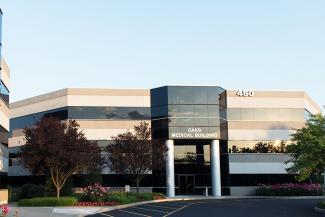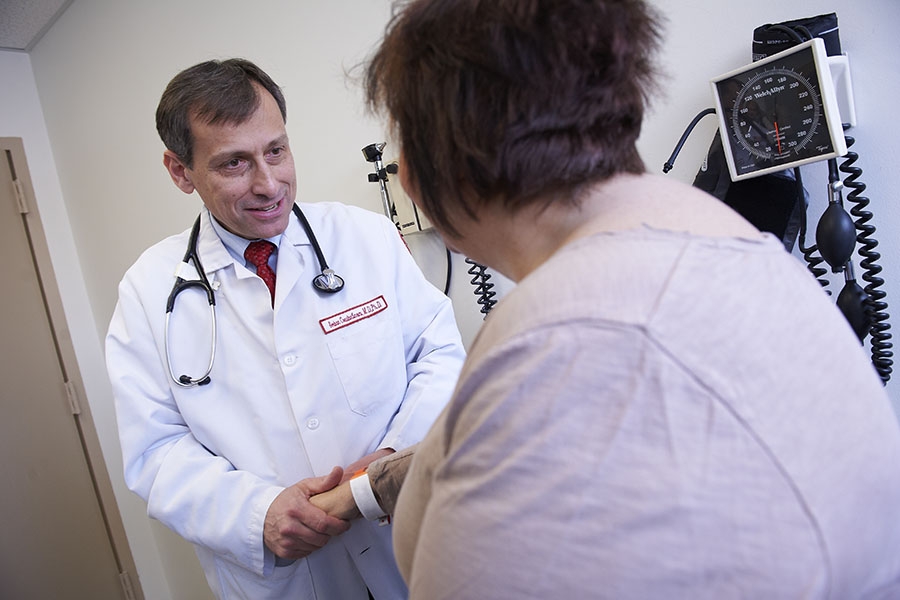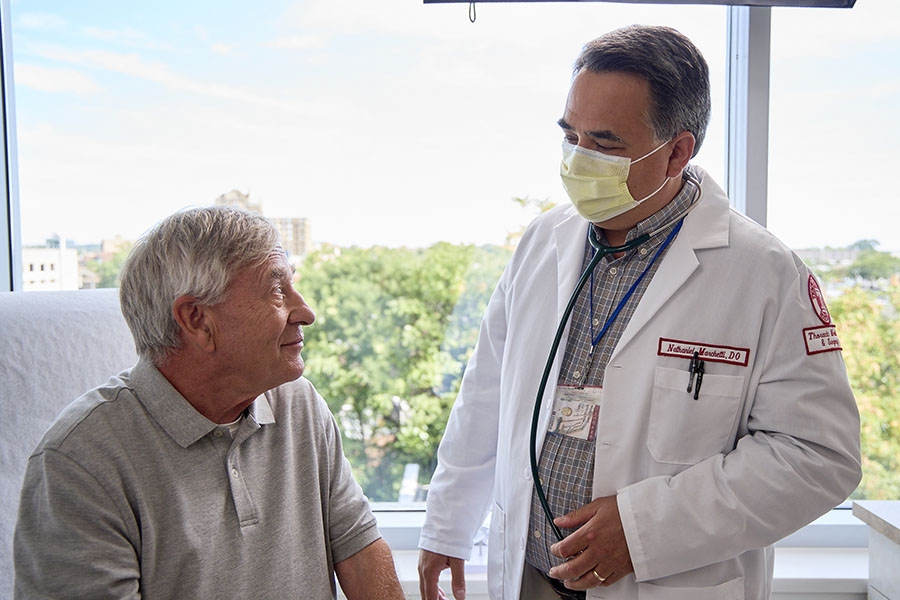What you'll learn on this page:
- What Is Lung Transplantation?
- Types of Lung Transplant Procedures
- Steps to Lung Transplantation
- Who Should Have Lung Transplantation?
- Why Lung Transplant Is Performed
- One of the Largest, Most Experienced Transplant Programs in the Country
- Expanding to Meet the Needs of Patients
- Teamwork That Leads to Advancement
- When Transplant Is Not an Option
What Is Lung Transplantation?
Lung transplant is a surgical procedure that replaces one or two diseased lungs with healthy lungs, usually from a deceased donor. In some cases, a heart transplant is performed at the same time. New lungs help the body get the oxygen it needs to survive.
While lung transplant is a life-saving surgery, it’s also a major operation that requires lifelong care. Patients must take powerful immunosuppressant drugs for the rest of their lives to reduce risk of organ rejection.
Types of Lung Transplant Procedures
Depending on your condition, you may have a single or double lung transplant. You may also have a heart transplant at the same time if you have significant heart damage. Temple transplant surgeons are highly experienced in all types of lung transplant procedures.
Single lung transplant
The transplant team replaces one diseased lung with a healthy lung from a donor. This procedure generally takes 2 to 5 hours. If both lungs are diseased, but only one donor lung is available, the lung with the least function is replaced. Approximately 2/3 of lung transplants performed at Temple are single lung transplants.
Double lung transplant
In the case of a double lung transplant, both diseased lungs are replaced with healthy lungs from a donor. This procedure can take 4 to 10 hours to complete. Approximately 1/3 of lung transplants performed at Temple are double lung transplants.
Heart-lung transplant
Heart-lung transplant is performed when you have serious damage to one or both lungs, and to the heart. During this procedure, one or both diseased lungs and the heart are replaced with the donor’s healthy lungs and heart. This procedure may take 4 to 10 hours to complete.
If you have serious lung disease, a lung transplant can help restore your ability to breathe easier and improve your quality of life. Thanks to advances in techniques, technology and lifelong care after surgery, many patients live much longer than they would without transplant.
In fact, the national 1-year survival rate is about 90%. And at 5 years, the national survival rate is 50%.
Steps to Lung Transplantation
Evaluation
The first step of getting a lung transplant is finding out if you’re sick enough to need a new lung yet healthy enough to receive a new lung. This involves a careful evaluation by specially trained Temple doctors, nurses, social workers and more who will consider your physical and psychological health and suitability for major surgery.
This expert team will also determine whether another treatment other than lung transplantation is more appropriate for you. In some cases, adjusting medications or a different procedure can improve symptoms and avoid the need for transplant.
Lung transplant can be a life-saving option for many, but it does have risks. During the first year after your transplant, you will be followed closely to watch for complications such as organ rejection and infection. You will also be required to take medicines to help prevent your body from rejecting your healthy organs. These medicines suppress your immune system, which increases your risk for infection.
During your evaluation, the lung transplant team will ensure you understand these risks and the commitment required from you long after your procedure.
Preparation
Once you have been cleared for lung transplant, you will prepare for the operation and wait for a donor match. During this period, you may need to reduce certain risks or undergo further tests or procedures. Patients who are very sick may also be placed on extracorporeal membrane oxygenation (ECMO). An ECMO machine may be thought of as a bridge to transplant. It replaces the function of the heart and lungs to help you remain stable until a donor lung becomes available.
You will be added to the national waiting list for a donor lung. The list is administered by the United Network for Organ Sharing (UNOS). As organs become available, UNOS makes the most appropriate match based on factors such as:
- Blood type
- Organ size
- Distance between donor organ and patient
- Patient's overall health and likelihood of success
An organ procurement organization (OPO) is a non-profit organization that works with UNOS to recover organs from deceased donors. The OPO in the Philadelphia area is Gift of Life.
While you wait for a donor match, you can prepare by doing the following:
